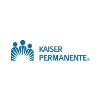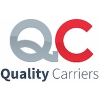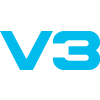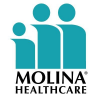Description : Job Summary :
- In addition to the responsibilities listed above, this position is also responsible for providing consultation and education related to clinical quality and patient safety, accreditation, regulatory and licensing (AR&L), risk management, and infection prevention and control;
- contributing to the evaluation, design, and development of evidence-based guidelines, principles, and / or programs related to area of work as well as facilitating implementation efforts to reduce variation in clinical practice and optimize patient outcomes;
- assisting with the collection, analysis, report development, and presentation of clinical data for a variety of users including for state, federal, and local agencies;
- helping to provide education regarding the interpretation of compliance methods when preparing for regulatory reviews, the interpretation of regulatory requirements, and regional project goals;
- monitoring, reporting, and developing mitigation plans for all occurrences which may lead to medical center liability; supporting the medical centers continuous survey readiness program to maintain compliance with regulatory standards;
and serving as a liaison with applicable government agencies, regulatory agencies, and other organizations.
Essential Responsibilities :
- Promotes learning in others by proactively providing and / or developing information, resources, advice, and expertise with coworkers and members;
- builds relationships with cross-functional / external stakeholders and customers. Listens to, seeks, and addresses performance feedback;
- proactively provides actionable feedback to others and to managers. Pursues self-development; creates and executes plans to capitalize on strengths and develop weaknesses;
- leads by influencing others through technical explanations and examples and provides options and recommendations. Adopts new responsibilities;
adapts to and learns from change, challenges, and feedback; demonstrates flexibility in approaches to work; champions change and helps others adapt to new tasks and processes.
Facilitates team collaboration to support a business outcome.
- Completes work assignments autonomously and supports business-specific projects by applying expertise in subject area and business knowledge to generate creative solutions;
- encourages team members to adapt to and follow all procedures and policies. Collaborates cross-functionally and / or externally to achieve effective business decisions;
provides recommendations and solves complex problems; escalates high-priority issues or risks, as appropriate; monitors progress and results.
Supports the development of work plans to meet business priorities and deadlines; identifies resources to accomplish priorities and deadlines.
Identifies, speaks up, and capitalizes on improvement opportunities across teams; uses influence to guide others and engages stakeholders to achieve appropriate solutions.
- Conducts data extraction, analyses, and presentations to support quality improvement efforts by : conducting statistical analysis to determine the reliability and confidence intervals for quality improvement evaluations and special projects;
- creating charts, graphs, and narrative summaries of improvements utilizing multiple data reporting systems; presenting quality improvement metric reports at the individual and team level to demonstrate improvements and effectiveness of quality improvement programs into specified formats;
and documenting and analyzing trends, potential errors, and other analysis and reporting finds to the supervisors.
- Facilitates quality improvement and improvement risk management efforts by : assisting with the development of corrective action plan for areas of improvement identified through utilization review, clinical records audit, claim denials, member satisfaction surveys, and auditing surveys;
- ensuring process improvements are compliant with established internal and external regulation requirements at the local level;
- conducting root cause analysis, failure mode and effect analysis, and other assessments in response to significant events, near misses, and good catches in order to identify areas of improvement;
and exercising independent judgment to escalate high-risk issues and trends to appropriate entity for resolutions.
- Develops and utilizes quality improvement performance metrics by : developing performance metrics, standards, and methods to establish improvement success;
- collaborating with multiple stakeholders, often with competing / conflicting objectives, to ensure development of cohesive and reachable metrics are practical and approved for assigned departments;
and facilitating the collection of metric data from workflows and projects by utilizing sound methodology.
- Facilitates the development of quality improvement initiatives by : implementing methods and tools to develop stakeholders capabilities for process improvements;
- integrating the use of data-driven improvement principles, tools, and problem-solving methods, including Lean / Six-Sigma concepts and techniques using quality improvement metrics;
and developing and updating milestones, detailed workplans, and documentation practices in order to create a clear, logical, and realistic plan.
- Serves as the subject matter expert for quality improvement processes and regulations within assigned departments by : learning current internal policies and external regulations;
- participating on committees, projects to propose a course of action on the enforcement, development of policies or procedures of regulations and auditing processes;
- fostering collaborative, results oriented partnerships to ensure compliance with regulations and improve patient safety, maintain the KP safety culture, reporting accuracy, and health outcomes;
- delivering educational programs to raise awareness for regulation requirement, internal concerns, and system / database usage;
and anticipating issues, weigh practical considerations in addressing issues and seek input from engagement manager / sponsor to resolve.
Delivers stakeholder development and quality performance review efforts by : conducting utilization and performance reviews utilizing multidisciplinary criteria and guidelines, and takes a systematic approach to quality improvement;
identifying performance areas of improvement for stakeholders and provides feedback and coaching as needed; and delivering and assisting in the development training and educational programs related to process improvement for quality improvement programs for stakeholders at the team level.
Minimum Qualifications :
- Minimum one (1) year of experience in a leadership role with or without direct reports.
- Minimum two (2) years of experience with databases and spreadsheets or continuous quality improvement (CQI) tools.
- Minimum three (3) years of experience in a clinical setting, health care administration, or a directly related field.
- Bachelors degree in Business Administration, Health Care Administration, Nursing, Public Health, or related field AND Minimum four (4) years of experience in quality, performance improvement, customer service, or a directly related field OR Minimum seven (7) years of experience in heath care quality assurance / improvement or a directly related field.
- Registered Nurse License (in the state where care is provided)
Additional Requirements :
- Knowledge, Skills, and Abilities (KSAs) : Clinical Quality Expertise; Negotiation; Risk Management; Compliance Management;
- Health Care Compliance; Applied Data Analysis; Health Care Quality Standards; Quality Improvement; Development Planning;
Agile Methodologies; Process Mapping; Project Management; Risk Assessment
Preferred Qualifications :
- Master's degree in Business Administration, Health Care Administration, Nursing, Public Health, or related field.
- Health care clinical license from the practicing / applicable state (e.g., Registered Pharmacist (RPh), Physical Therapist, Occupational Therapist, Speech Therapist, Social Worker).








